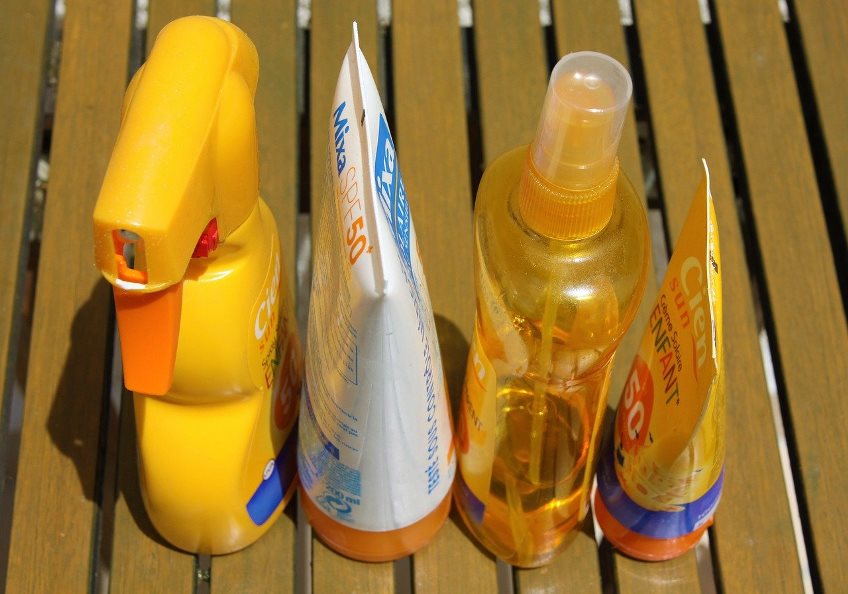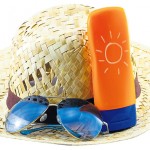Now that we are all at home and self-isolating to protect ourselves from the coronavirus, and now that the weather has started to take a turn for the better as we get deeper and deeper into summer it’s time to turn our attention to protecting ourselves from the harmful effects of the sun when spending time outside.
More and more of us will have spent time in our gardens over recent weeks, perhaps more so than we would normally have done if we were able to live our lives under normal circumstances – but be aware – more time spent outside can be potentially harmful to our health.
The risk comes from sunburn – and sunburn automatically increases your risk of getting skin cancer. Many of us can forget just how delicate our skin can be, especially as the start of spring and summer when we start to exposure ourselves more and more to the sunlight as the days start to warm up and the sun shows its face more.
And whilst the benefits of the sun, principally from the vitamin d that it provides us is welcome, we should all makes sure that we take sensible precautions to prevent us suffering from its harmful effect – and remember it doesn’t actually have to be a sunny day for you to suffer the effects of sunburn..
Some safety tips
If you like to spend time outside then it’s worth following some of the helpful safety tips that NHS England provides. These include:-
• Try to spend more time in the shade when the sun is at its fiercest – this is typically between the hours of 11.00am and 3.00pm.
• Make sure that you don’t allow the sun to burn your skin. That might mean covering up exposed parts of your body – and you men out there remember to be especially careful with your head, especially if you have little or no hair – or it may mean using suitable skin protection such as sun tan lotion.
• Where possible, cover your skin, even with lightweight fabric – anything that stops the suns’ rays getting directly onto your skin can work as a barrier and therefore protection for you.
• On particularly bright days always wear sunglasses as well to protect your eyes from the harmful UV rays.
Have the right sun screen
Whilst sun screen alone won’t protect you, it will at least give some help, provided it is the right sort. Make sure that you buy a product that advertises a sun protection factor of at least 30 as this will protect you against the harmful UVB rays and also make sure that it has a minimum of 4-star UVA protection. You should also make sure that if you get the tube out of the cupboard where it has been resting since the last time you used it that it is still within its use-by date – if not throw it away and buy some new as it will be pretty useless and won’t provide the level of protection that you need.

Even if you have the right sun screen you need to apply it correctly
Generally speaking, the vast majority of people do not apply enough sunscreen. The NHS advises that as a guide adults should aim to apply sunscreen as follows:-
• 2 teaspoons of sunscreen if you’re just covering your head, arms and neck
• 2 tablespoons if you’re covering your entire body while wearing a swimming costume
However, if not enough sunscreen is applied or it is applied too thinly then the amount of protection it gives is reduced. If you are planning to be out in the sun long enough to risk burning then sunscreen needs to be applied twice as follows:
• 30 minutes before going out
• And again just before going out
Sunscreen should be applied to all exposed skin, including the face, neck and ears, and head if you have thinning or no hair, but a wide-brimmed hat is better. Finally, if you are spending a prolonged period of time outside then you should re-apply protection at least every two hours.
What if I still get sunburnt?
If you do get sunburnt then the best advice is to sponge any sore or affected skin with cool water, then apply a soothing aftersun cream or spray and preferably one that contains aloe vera.
Painkillers, such as paracetamol or ibuprofen, can also help ease the pain by helping to reduce the inflammation caused by sunburn. If you are considering taking ibuprofen then do first make sure that it is compatible with any other medicines that you may be taking for other health conditions.





